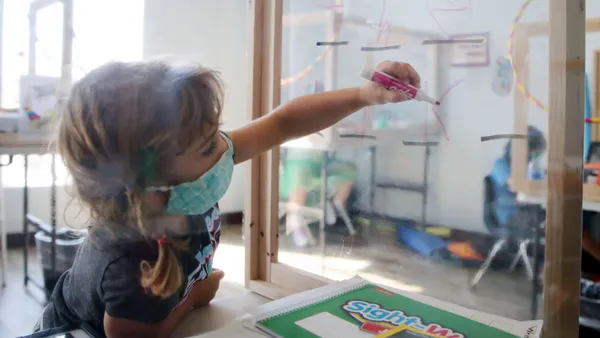Dive Brief:
- Although social media is one of the greatest influencers on students' health and happiness today, school staff and parents are not well-equipped to keep up with changing digital trends, according to a student survey conducted by The Social Institute and released Wednesday.
- Recent threats of school violence and acts of school destruction originating from challenges on social media have brought a renewed emphasis on teaching digital citizenship and positive social media engagement, with experts recommending schools and parents share resources for promoting responsible online behavior.
- Proactive approaches such as Common Sense's social media curricula and The Social Institute's seven social standards can help students recognize and respond to negative social media experiences, as well as set expectations for healthy online interactions.
Dive Insight:
A proposal in the Florida Legislature would require school boards to make social media literacy instructional materials available online and notify parents of the resources. The legislation also encourages the State Board of Education to adopt standards for social media instruction.
Since 2015, at least 79 media literacy and digital citizenship bills have been introduced in 28 states, and at least 14 of those have been enacted in 10 states, according to the Education Commission of the States.
In Virginia, for instance, the Standards of Learning for Digital Integration, which were adopted with input from parents and educators in October 2020, align with the International Society for Technology in Education's seven standards for students that include teaching students about safe, legal and ethical online behavior.
At the local level, district leaders are also encouraging positive online behavior. Earlier this month, the Dallas Independent School District in Texas announced a districtwide campaign to promote digital self-awareness, safety, etiquette and best practices among middle school and high school students.
“We want to make sure that our students are safe and that they’re not posting things on the internet that would jeopardize their safety," Roshonda Clayton-Brown, deputy chief of school leadership, said in an article on Dallas ISD's News Hub.
The Social Institute's survey asked nearly 10,500 public and private students nationwide about how they can be empowered to navigate social media and technology positively. Of the 4th graders who were asked about ways they can build a positive online reputation, 60% said they could post positive and encouraging comments.
Nearly half — 46% — of 7th graders said they would tell a friend to block and report the social media account if they realized someone had created an anonymous account about them and posted embarrassing photos with threatening captions.
Students responding to the survey said they wished adults knew that social media gives them the ability to communicate and express themselves, and they would rather be taught how to use social media in a healthy manner than be restricted from using apps.
Laura Tierney, founder and CEO of The Social Institute, said the pandemic has led to technology becoming even more embedded in students' lives than before. As a result, schools should "double down" on teaching students about expectations for the use of technology and social media.
"When schools are giving students access to technology, through 1:1 programs and more, it's like we're giving students the keys to the car and we also have to put them through driver's ed before they can start driving," Tierney said







 Dive Awards
Dive Awards







